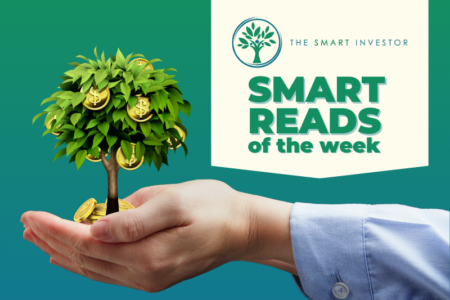The selling has been indiscriminate. The selling has been frenetic. The selling has been brutal.
It’s almost as though someone had just kicked the legs out from under the stock market. In a month, nearly 20% has been wiped off global markets.
Problem is that the market hates uncertainty….
…. And how much more uncertainty do we need than a foot-in-mouth American leader who is showing as much stewardship as a lemming. If flip-flopping was an Olympic event, the US administration would be odds-on favourite for the gold medal….
…. the only difficulty would be selecting the best candidates for Team USA because they are all first-rate flip floppers.
But let’s never forget that uncertainty is part and parcel of investing. That is why there is a risk premium attached to investing in the stock market….
…. it is the extra return that we as investors demand from shares compared to risk-free instruments such as cash and bonds.
The extra return might be somewhat moot right now with global shares falling like dominoes. That’s because the coronavirus outbreak has introduced a level of uncertainty that is, for now, unquantifiable.
We still don’t know much about the virus. We still don’t know how long the pandemic will last. And we don’t even know if a cure, or more importantly, a vaccine is even possible.
There is another issue that is spooking the market. There are many companies out there that have exploited low interest rates since the great financial crisis to borrow money – lots of money….
…. In March this year, the Institute of International Finance warned that total global debt of US$253 trillion had reached an all-time high of more than 322% of GDP.
The danger now is that the coronavirus outbreak could affect the ability of some companies to not only repay their debts on time, but to also service the interest payments on their loans in the meantime.
Debt was never a problem when the global economy was growing. In fact, some financial advisers were even actively encouraging it.
But the coronavirus outbreak has brought global trade to a virtual standstill. It is hard to see how some heavily indebted companies can survive….
…. the issue isn’t that interest rates are too high or that liquidity has dried up. Central banks will make sure that doesn’t happen. The problem, though, is a drop in revenue that no amount of cost-cutting can possibly address.
That could be an unexpected opportunity for cash-rich companies to grow market share and buy distressed assets on the cheap.
For us private investors, it is a time to focus on cash-rich, debt-free companies in strategically important areas. In distressing times, the balance sheet rather than the profit and loss account should be our first port of call.
If a company doesn’t have unmanageable debt, then it can’t go bust. It might suffer along with other industries. But it is unlikely to go to the wall.
It might even emerge from the coronavirus outbreak both stronger and tougher. And that is when we will fully appreciate what is really meant by the equity risk premium.
If you’d like to learn more investing concepts, and how to apply them to your investing needs, sign up for our free investing education newsletter, Get Smart! Click HERE to sign up now.
Get more stock updates on our Facebook page. Click here to like and follow us on Facebook.
Disclosure: David Kuo does not own shares in any of the companies mentioned.





